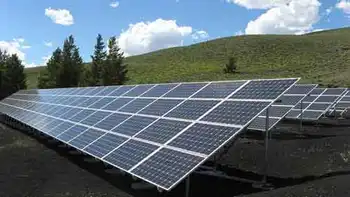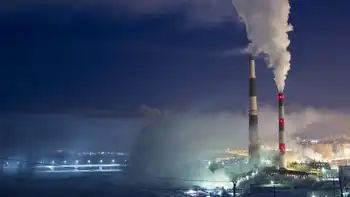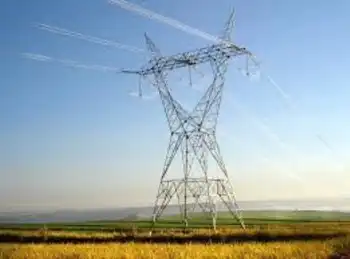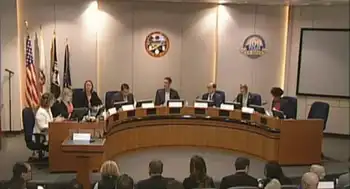Tackling utilities' emissions
The Public Utilities Commission acted in order to "do our part in meeting the... greenhouse gas reduction goals articulated" last year by Gov. Arnold Schwarzenegger, said Mike Peevey, the PUC president.
PUC member John Bohn urged his colleagues to be "very, very careful to have a full understanding of the costs involved." Still, Bohn, a Schwarzenegger appointee, joined in the panel's unanimous vote to use mandatory emissions limits and penalties to prod the power industry to cut output of carbon dioxide and five other so-called greenhouse gases.
Devra Wang, California energy program director for the Natural Resources Defense Council, called the PUC action "a terrific start" but added: "We need a statewide enforceable cap on emissions."
Electricity production accounts for about 20 percent of California's greenhouse gas emissions, according to a climate task force composed of state officials. Analysts from the California Air Resources Board recently estimated that it would cost $8 billion to meet Schwarzenegger's mandate to cut greenhouse gas emissions to 1990 levels by 2020.
The analysts also predicted that those costs would be more than offset by savings resulting from more efficient energy use and economic growth. However, the details remain to be worked out about how to calculate the caps and what combination of financial incentives and penalties would be included in the plan.
Meanwhile, California continues to have some of the most expensive electricity in the country. Last year, at an average cost of 11.3 cents a kilowatt hour, the state's electricity prices were 40 percent above the national average and higher than in all but seven other states.
So it is not surprising that there is reluctance to take on extra costs by electricity providers, who already face a state deadline to boost their use of solar, wind and other renewable fuels that are usually more expensive than conventional fuels.
In filings with the PUC, the state's three largest electric utilities opposed an immediate decision to implement emissions' limits. SoCal Edison, with about one-third of its power plants fired by coal, a major source of carbon dioxide, said in a filing that caps could drive away power plant developers, cause utilities to lose customers or result in cheating.
San Diego Gas & Electric and Pacific Gas & Electric urged the PUC to wait for implementation of national or regional programs to cut greenhouse gas emissions.
But two environmental groups - the Union of Concerned Scientists and the Natural Resources Defense Council - urged the state to adopt caps. The UCS said in a filing that a firm ceiling would "instill both the regulatory and the corporate discipline necessary" to make sure that greenhouse gas emissions were considered when electricity providers shop for new power supplies.
After the PUC sided with environmentalists, SoCal Edison issued a release that said that the regulators' "action narrowly focuses on just a portion of one sector of the California economy - investor-owned electric utilities and retail service providers other than municipal utilities." SoCal Edison added that utilities are "already very clean" and that greenhouse gas reduction efforts should take a broader approach.
Spokeswoman Christy Dennis said that PG&E supports the concept of cutting greenhouse gas and would like to see the state develop a "cap and trade system." Backers say that such a system could combines limits with markets where companies could profit by trading emissions' reductions. "The devil is in the details," she said.
Those details will be worked out in a new round of hearings and deliberations at the PUC.
Related News

Kyiv warns of 'difficult' winter after deadly strikes
KYIV - Ukraine has warned that difficult winter months lay ahead after a massive Russian missile barrage targeted civilian infrastructure, killing three in the south and wounding many across the country.
Russia launched the strikes as Ukraine prepares for a third winter during Moscow's 19-month long invasion and as President Volodymyr Zelensky made his second wartime trip to Washington.
"Most of the missiles were shot down. But only the majority. Not all," Zelensky said, calling for the West to provide Kyiv with more anti-missile systems.
The fresh attack came as Poland said it would honour pre-existing commitments of weapons supplies to Kyiv, a…





